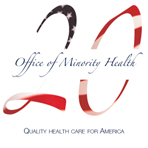By Fia Curley
It wasn't just about getting tested.
It wasn't just about commemorating a day.
For HIV testing sponsors at Eastern Illinois University (EIU),  a different priority topped the list.
a different priority topped the list.
"Our focus is not that you just come out and get tested, but that you come back and get your results," said Shawn Peoples, advisor for the Zeta Theta chapter of Delta Sigma Theta, which sponsored the second annual HIV testing for National Black HIV/AIDS Awareness Day at EIU.
Armed with packets of information, incentives and a nurse from the Coles County Public Health Department, about 70 individuals signed up to find out their HIV status, compared to 15 at last year's event.
Each person spent about 20 minutes with the nurse, who shared information about HIV/AIDS, answered questions and took a saliva sample.
To keep students around post-test, the Deltas used the waiting time to educate people, offering pamphlets and brochures, a video about high school students and HIV, a question and answer session and hourly drawings with DVD and CD players, JumpDrives and Wal-Mart gift certificates as prizes.
However, due to time constraints, only 50 individuals were seen, according to Peoples, who said the remaining 20 seemed genuinely disappointed about not being tested, causing members to consider scheduling another testing event in April.
"We said ‘we don't need to wait until next year,'" she said. "People wanted to know their status."
Members advertised the testing by posting fliers and placing ads in the faculty newsletter and student newspaper, which seemed to pay off.
This year about 80 percent of those who signed up were African-American. "It's awesome. It's exciting to have students take the lead in educating their peers and communities about HIV and AIDS testing and come back for the results," said Gina Whitener, Assistant Section Chief of HIV/AIDS Program for Illinois.
Whitener said she believes the testing is increasingly successful "because [the university] ha[s] close relationships with community partners and regularly service communities with high risks as well as students on the campus."
African Americans are a target group for HIV testing for the state of Illinois. Testing was funded through Gov. Rod Blagojevich's initiative, Brothers and Sisters United against HIV/AIDS (BASUAH). Under BASUAH, which began in 2005, the governor endeavored to partner with state colleges to increase awareness, promote testing and reduce rates of new infections.
"We just wanted to arm them with information that was accurate that would prepare them for a better life experience," said Jocelyn M. Phillips, academic adviser for the Gateway Program at EIU. "Sometimes it disturbs me when I hear students talk about their sexual experience—and students are very frank about their experiences."
But Phillips said she has noticed females becoming pregnant, which has caused her to think that maybe they needed a little bit more information. That is why, for the second year in a row, Phillips enlisted the assistance of Jay Blackwell, Director of Capacity Building Division of the Office of Minority Health Resource Center (OMHRC) to give a presentation on HIV.
"I'm just so grateful for the support Jay and OMHRC were able to give us. It meant so much to us and the campus," Phillips said.
This year the university board voted to make the first full week of February HIV Awareness Week, scheduling speakers to visit throughout the week to complement students' education.
"I think what it says is that Eastern and our university board are open to bringing issues to the forefront," Peoples said, "and being able to educate our students not only in the classroom but outside the classroom as well."
And although EIU students are knowledgeable about HIV facts, Peoples said stressing the importance of protecting yourself, regardless of the length of the relationship or who you choose as your sexual partners, was paramount.
"We did want to let people know, you may think you're in this relationship but do you know his status? Do you know her status?" Peoples said. "You can get it from one partner or you can get it from multiple partners."
--
Fia Curley is a writer for the OMHRC. Comments? Email: fcurley@omhrc.gov
Links
AIDS among Minorities
http://www.omhrc.gov/templates/content.aspx?ID=4800&lvl=3&lvlID=287
AIDS.gov
http://www.aids.gov
HIV/AIDS: Organize, Mobilize & Inform
http://www.omhrc.gov/templates/content.aspx?ID=4210
The Office of Minority Health
http://www.omhrc.gov/templates/content.aspx?ID=22
HIV Infection and AIDS: An Overview
http://www.niaid.nih.gov/factsheets/hivinf.htm
HIV, AIDS, and Older People
http://www.niapublications.org/engagepages/aids.asp
Women & Girls and HIV/AIDS
http://www.nih.gov/od/oar/about/research/women/oarwomen.htm
The Centers for Disease Control and Prevention's Global AIDS Program
President's Emergency Plan for AIDS Relief
http://www.cdc.gov/nchstp/od/gap/WAD.htm


